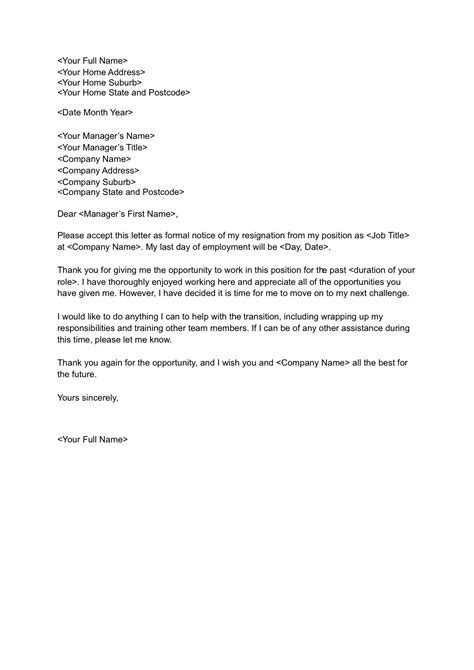Resignation Etiquette: Informing Your Boss

Resigning from a job can be a difficult decision to make, but once you have made the decision to move on, it’s important to do it with professionalism and grace. Informing your boss of your decision to resign is a crucial step in the process, and it’s important to handle it in the right way. In this post, we’ll cover the steps you need to take to resign from your job in a professional and respectful manner.
1. Choose the Right Time and Place
Timing is everything when it comes to resigning from your job. You want to choose a time that’s convenient for your boss and allows them to prepare for your departure. It’s best to schedule a meeting with your boss in person, rather than sending an email or making a phone call.
Tip:
- Choose a time when your boss isn’t busy or stressed.
- Make sure you have plenty of time to talk without interruptions.
- Consider giving your boss a heads up that you’d like to talk about your future with the company so they can prepare for the meeting.
2. Be Clear and Concise
When you speak with your boss, be clear and concise about your decision to resign. Explain why you have decided to leave and be honest about your reasons. It’s important to be respectful and professional, even if you’re leaving because of a negative experience.
Tip:
- Prepare a list of reasons why you’re leaving and rehearse what you’re going to say.
- Avoid being negative or critical, and focus on the positive aspects of your experience with the company.
- Be prepared to discuss your notice period and any other details related to your departure.
3. Offer to Help with the Transition
Offering to help with the transition can go a long way in showing your boss that you’re committed to leaving in a professional manner. This could involve training your replacement, creating a transition plan, or documenting your responsibilities and processes.
Tip:
- Be specific about what you’re willing to do to help with the transition.
- Make sure you have a clear understanding of your responsibilities during the transition period.
- Be prepared to follow up with your boss after the meeting to discuss the transition plan in more detail.
4. Thank Your Boss and Colleagues
Thanking your boss and colleagues for the opportunities and experiences you’ve had while working with them is an important part of resigning. It shows that you appreciate their support and that you value the relationships you’ve built.
Tip:
- Be sincere in your thanks and avoid being overly emotional.
- Consider writing a thank-you note to your boss and colleagues after the meeting.
- Stay in touch with your colleagues and maintain your professional network.
5. Follow Up with a Resignation Letter
A resignation letter is a formal way of notifying your boss of your decision to leave. It’s important to follow up your meeting with a written resignation letter, even if you’ve already discussed your resignation in person.
Tip:
- Keep your resignation letter short and to the point.
- Include the date of your last day of work and any other relevant details.
- Thank your boss and colleagues again in the letter.
Conclusion
Resigning from a job can be a difficult process, but by following these steps, you can resign in a professional and respectful manner. Remember to choose the right time and place, be clear and concise, offer to help with the transition, thank your boss and colleagues, and follow up with a resignation letter. By doing so, you’ll leave on a positive note and maintain your professional reputation.
FAQs
1. When should I tell my boss that I’m resigning?
You should tell your boss that you’re resigning at a time that’s convenient for them and allows them to prepare for your departure. It’s best to schedule a meeting in person and give them a heads up beforehand.
2. How much notice should I give my boss?
The amount of notice you should give your boss will depend on your company’s policies and your contract. In general, it’s best to give at least two weeks’ notice, but you may need to give more if you’re in a senior position or have a long notice period in your contract.
3. What should I include in my resignation letter?
Your resignation letter should include the date of your last day of work, a brief explanation of why you’re resigning, and a thank-you to your boss and colleagues. Keep it short and to the point.
4. Should I tell my colleagues that I’m resigning?
It’s up to you whether or not you want to tell your colleagues that you’re resigning. If you have a good relationship with them, you may want to let them know in person before you leave. Alternatively, you may choose to send an email or a group message to let them know.
5. How can I make sure I leave on a positive note?
To leave on a positive note, it’s important to be respectful and professional throughout the resignation process. Offer to help with the transition, thank your boss and colleagues, and maintain your professional relationships after you leave.
